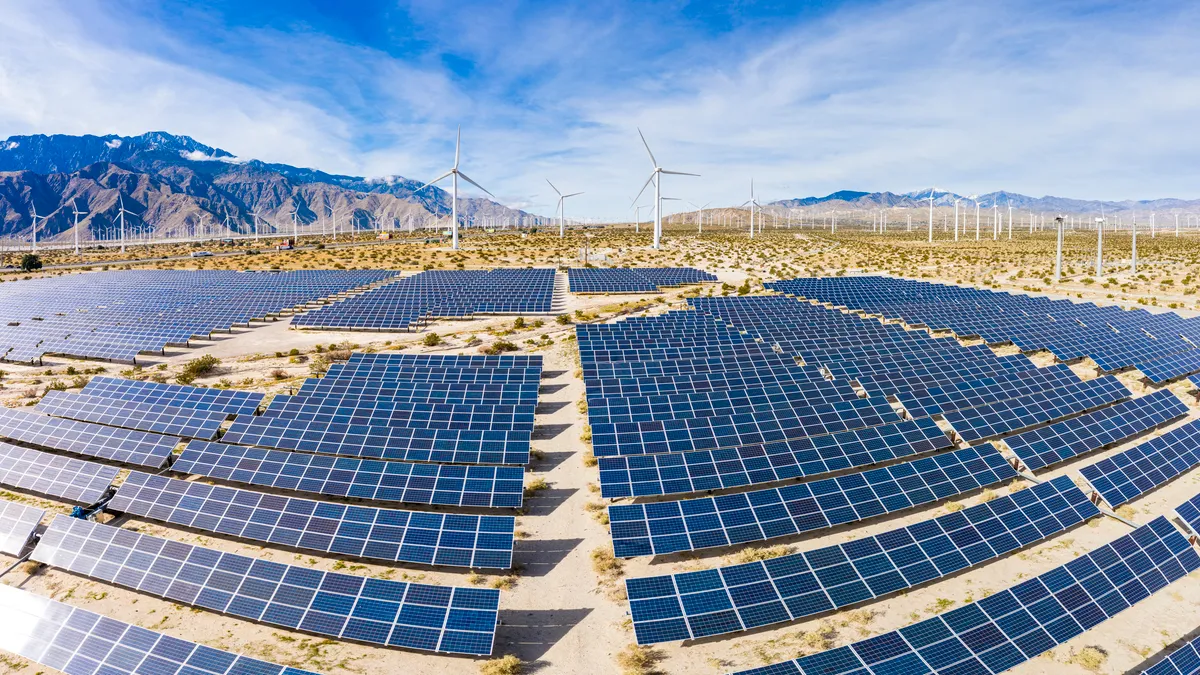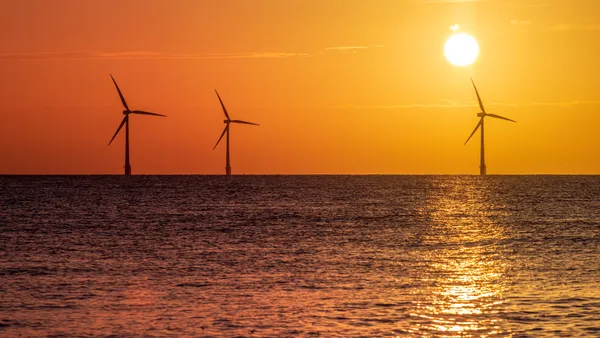Dive Brief:
-
Duke Energy will undertake a “strategic review” of its commercial renewable energy holdings and will look for potential buyers, company leaders announced during their second-quarter earnings call on Thursday.
-
Duke Energy’s 5.1 GW of commercial wind and solar represent less than 5% of the company’s consolidated earnings, according to CEO Lynn Good, who said the company’s regulated utilities are set to grow much more rapidly than the commercial arm in the coming years.
-
Any proceeds from the sale of the wind and solar assets, which CFO Steve Young estimated to be worth approximately $4 billion, would be used to repay and avoid high-interest debt, Good said
Dive Insight:
Although optimistic about the potential of the Inflation Reduction Act, Duke Energy leadership is taking steps to brace against an inflationary future — and the potential sale of its commercial renewable energy holdings is on the table.
Duke Energy’s regulated utilities saw earnings increase $23 million over last year’s second quarter, Young said, thanks to favorable weather and growth in demand for electricity. Residential electricity consumption increased 1.2% on account of new customers and ongoing remote work trends, while commercial and industrial use grew 1.7% on the ongoing recovery from Covid-19. However, Young cautioned that Duke Energy continues to expect this rate of growth to moderate as the year progresses.
Meanwhile, earnings from the commercial renewable energy business remained basically flat, Young said. The segment had $57 million in adjusted earnings in the first half, according to the company.
Good said she believes the timing may be right for a sale of the company’s commercial renewable energy assets, given the current market for renewable energy assets, growing inflation, and the company’s upcoming plans to decarbonize its regulated utilities.
“We have line of sight to significant renewable, grid and other investment opportunities within our faster-growing regulated segment,” she said. She anticipated interest from a broad range of potential buyers.
The proceeds from the sale, Good said, would reduce the amount of new debt required to fund decarbonization of the company’s regulated utilities. Duke Energy remains on track to meet its emissions targets, with an accelerated deployment of renewable energy planned to begin after 2025, she said.
Young will assume management of the company’s commercial arm as chief commercial officer, and will conduct the planned strategic review, Good said. Brian Savoy, current executive vice president and chief strategy and commercial officer, will replace Young as CFO of Duke Energy.
In addition to the potential sale, Young said that Duke Energy is pursing $200 million in cost cuts, which the company plans to achieve through employee-driven productivity initiatives and increased automation.













